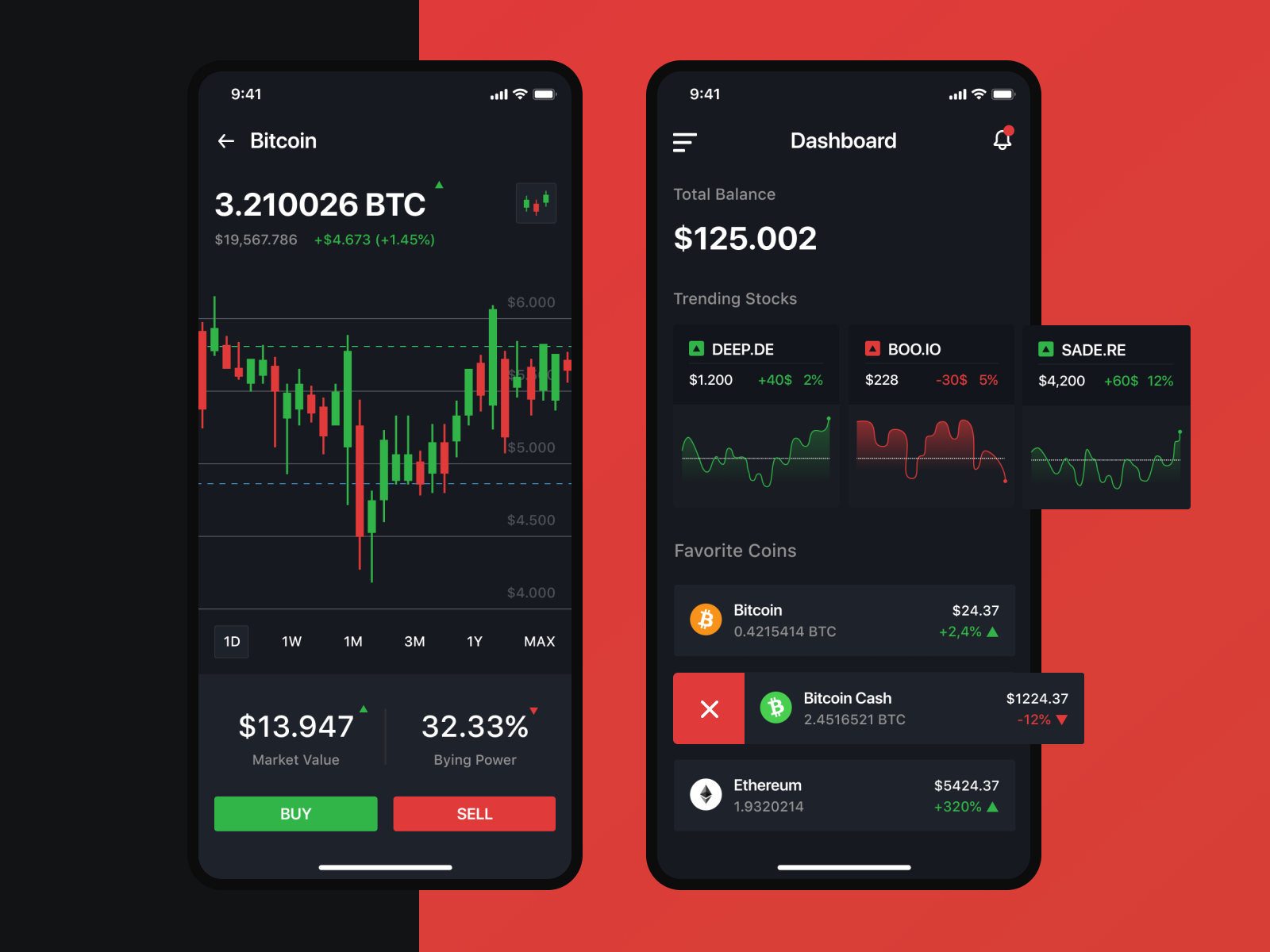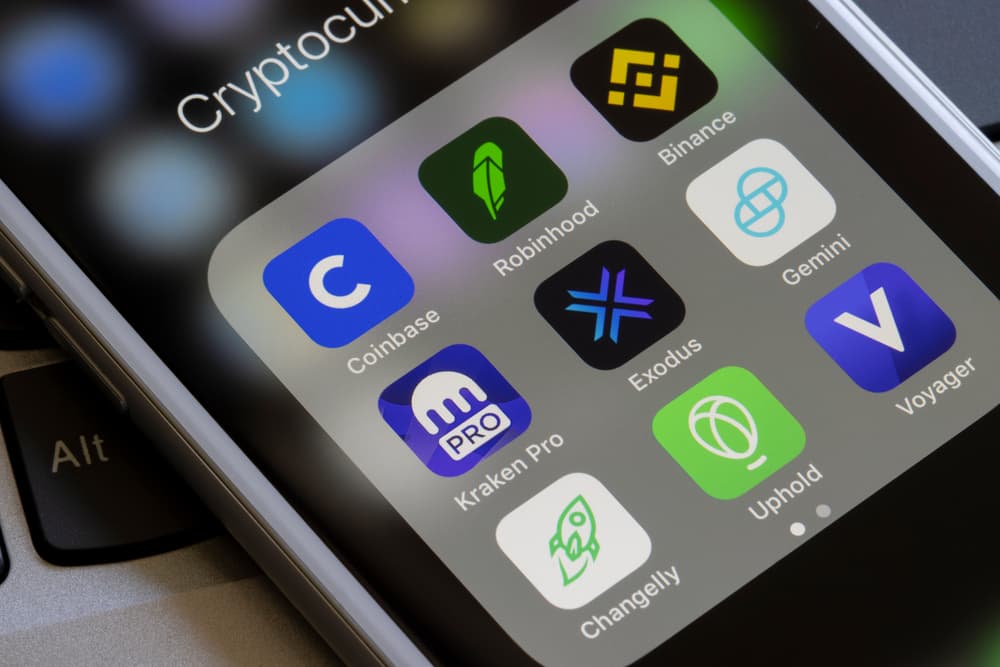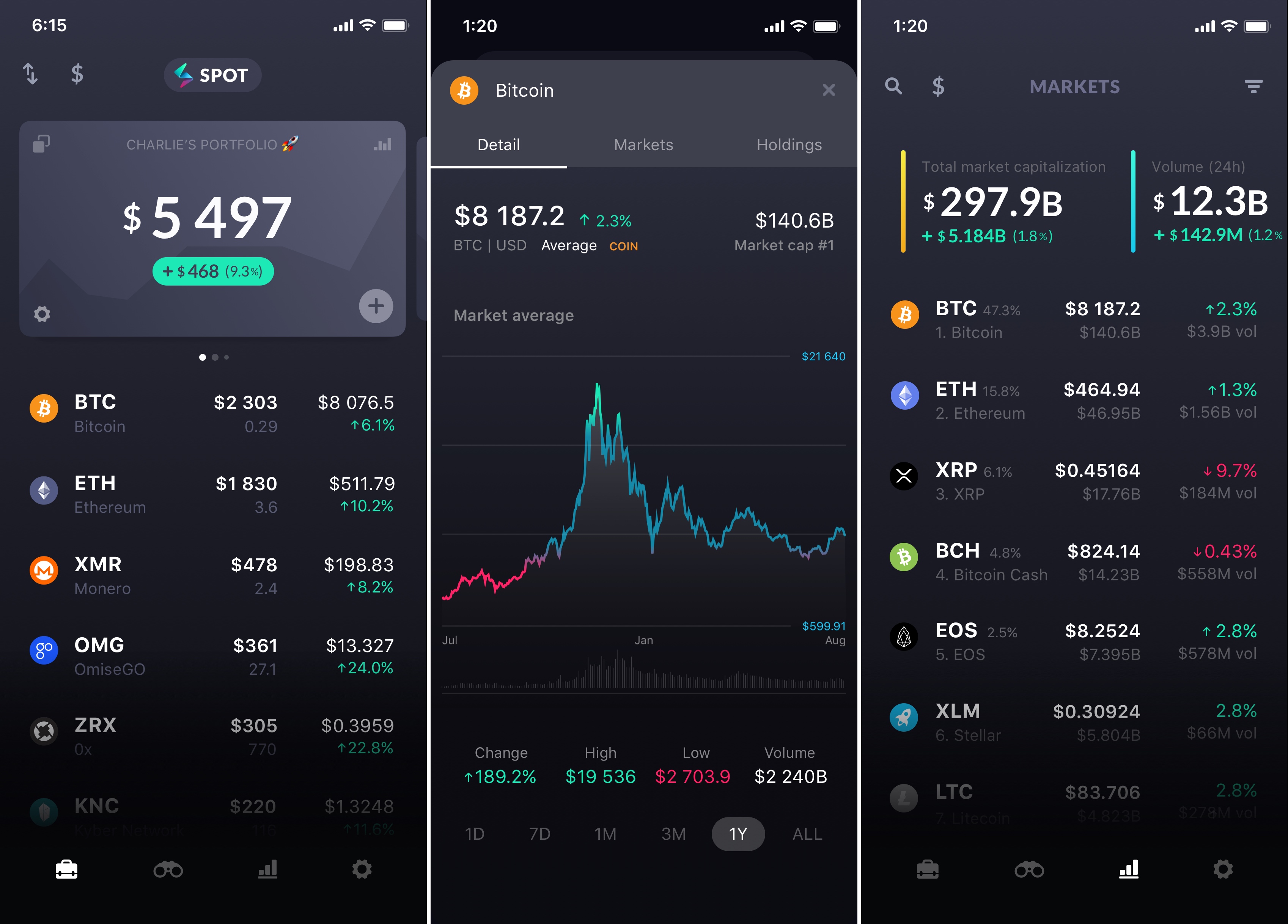Cryptocurrency apps have emerged as indispensable tools for managing digital assets in the rapidly evolving world of cryptocurrency. These apps offer a wide range of features and functionalities, catering to the diverse needs of users from secure storage to real-time market data.
This comprehensive guide delves into the cryptocurrency app landscape, exploring different types of apps, their key features, security considerations, regulatory implications, and emerging trends. Whether you’re a seasoned cryptocurrency enthusiast or a newcomer to the digital asset space, this guide will provide valuable insights and empower you to make informed decisions about choosing and using cryptocurrency apps.
Cryptocurrency App Market Overview: Cryptocurrency Apps

The global cryptocurrency app market is experiencing rapid growth, driven by the increasing adoption of cryptocurrencies and the need for secure and convenient ways to manage crypto assets.
According to a report by Grand View Research, the global cryptocurrency app market size was valued at USD 1.53 billion in 2021 and is projected to grow at a compound annual growth rate (CAGR) of 22.4% from 2022 to 2030.
The growth of the market is attributed to the increasing popularity of cryptocurrencies, the rising number of cryptocurrency exchanges, and the growing adoption of blockchain technology.
Key Trends
- The increasing adoption of cryptocurrencies is a major factor driving the growth of the cryptocurrency app market. The number of cryptocurrency users has grown significantly in recent years, and this growth is expected to continue in the coming years.
- The rising number of cryptocurrency exchanges is another factor contributing to the growth of the cryptocurrency app market. Cryptocurrency exchanges provide a platform for users to buy, sell, and trade cryptocurrencies. The increasing number of exchanges makes it easier for users to access and trade cryptocurrencies, which is driving the growth of the cryptocurrency app market.
- The growing adoption of blockchain technology is also contributing to the growth of the cryptocurrency app market. Blockchain technology is the underlying technology behind cryptocurrencies, and it provides a secure and transparent way to track and manage transactions. The growing adoption of blockchain technology is making it easier for businesses and individuals to use cryptocurrencies, which is driving the growth of the cryptocurrency app market.
Types of Cryptocurrency Apps

Cryptocurrency apps offer a wide range of services, catering to diverse user needs within the digital asset ecosystem. These apps can be broadly categorized into four main types, each with its unique set of features and functionalities:
Cryptocurrency Wallets
Cryptocurrency wallets are digital storage solutions designed to securely hold, send, and receive cryptocurrencies. They provide users with private keys that grant access to their funds and allow for easy management of digital assets. Wallets can be software-based, hardware-based, or custodial, offering varying levels of security and control.
Cryptocurrency Exchanges
Cryptocurrency exchanges are online platforms that facilitate the trading of cryptocurrencies. They provide users with a marketplace to buy, sell, and exchange digital assets, offering various trading pairs and order types. Exchanges also provide custody services, holding users’ funds and facilitating transactions.
Cryptocurrency Trading Platforms
Cryptocurrency trading platforms offer advanced features and tools for experienced traders. They provide real-time market data, charting capabilities, and sophisticated order types, enabling users to execute complex trading strategies. Trading platforms also cater to high-frequency trading and algorithmic trading.
Cryptocurrency News and Information Apps
Cryptocurrency news and information apps provide up-to-date news, analysis, and market insights on the cryptocurrency industry. They keep users informed about the latest developments, price movements, and regulatory changes, helping them make informed decisions.
Features and Functionality of Cryptocurrency Apps

Cryptocurrency apps provide various features and functionalities that enhance the user experience and cater to the specific needs of crypto enthusiasts. These features include:
Security Measures
Robust security measures are paramount in cryptocurrency apps to protect users’ funds and personal information. Essential security features include:
- Encryption: Data encryption ensures that sensitive information, such as private keys and transaction details, is protected from unauthorized access.
- Multi-factor authentication (MFA): MFA adds an extra layer of security by requiring users to provide multiple forms of identification, such as a password, PIN, or biometric data, when accessing their accounts.
Transaction Tracking and Reporting, Cryptocurrency apps
Cryptocurrency apps enable users to track their transactions and generate detailed reports for tax purposes or personal record-keeping. These features include:
- Transaction history: Users can view a complete history of their transactions, including the date, time, amount, and recipient or sender.
- Reporting tools: Apps often provide reporting tools that allow users to generate customizable reports based on specific criteria, such as transaction type, date range, or account balance.
Market Data and Analysis Tools
Cryptocurrency apps offer real-time market data and advanced analysis tools to help users make informed investment decisions. These features include:
- Market charts and graphs: Users can view interactive charts and graphs that display historical and real-time price data for various cryptocurrencies.
- Technical indicators: Apps often provide a range of technical indicators, such as moving averages, Bollinger Bands, and Relative Strength Index (RSI), to assist users in analyzing market trends and identifying potential trading opportunities.
Customer Support
Reliable customer support is crucial for cryptocurrency apps to assist users with any queries or issues they may encounter. Effective customer support channels include:
- Live chat: Apps may offer live chat support, allowing users to connect with a customer support representative in real-time.
- Email support: Email support allows users to submit their queries or issues and receive responses within a reasonable timeframe.
- Knowledge base: Comprehensive knowledge bases provide users with access to self-help resources, FAQs, and tutorials.
The presence of these features and functionalities in cryptocurrency apps enhances the user experience, providing a secure, convenient, and informative platform for managing cryptocurrencies. They empower users with the tools and resources necessary to make informed investment decisions, track their transactions, and protect their digital assets.
Security Considerations for Cryptocurrency Apps
Cryptocurrency apps offer convenient access to the world of digital currencies, but they also introduce unique security risks. Understanding these risks and implementing robust security measures is crucial for protecting users’ funds and sensitive data.
Hacking and Phishing Attacks
Cryptocurrency apps are vulnerable to hacking and phishing attacks, where malicious actors attempt to gain unauthorized access to user accounts and steal funds. These attacks can take various forms, such as:
- Malware:Malicious software can infect devices and steal sensitive information, including cryptocurrency wallet credentials.
- Ransomware:Ransomware encrypts files and demands a ransom payment to unlock them, potentially targeting cryptocurrency wallets and funds.
- Phishing emails and websites:Scammers send emails or create fake websites that mimic legitimate cryptocurrency platforms, tricking users into revealing their login credentials or private keys.
Private Key Theft
Private keys are essential for accessing and managing cryptocurrency wallets. If a private key is compromised, malicious actors can gain access to the user’s funds and transfer them without authorization.
Best Practices for Securing Cryptocurrency Apps
To mitigate these risks, it is essential to implement robust security measures for cryptocurrency apps. Best practices include:
- Strong Passwords:Use strong and unique passwords for all cryptocurrency-related accounts.
- Two-Factor Authentication:Enable two-factor authentication (2FA) to add an extra layer of security, requiring a second form of verification (e.g., SMS code) when logging in.
- Software Updates:Keep cryptocurrency apps and operating systems up to date to patch security vulnerabilities.
- Anti-Malware Protection:Install reputable anti-malware software to protect devices from malicious software.
- Be Vigilant:Be cautious of phishing attempts and never share sensitive information over email or unverified websites.
By adhering to these best practices, users can significantly enhance the security of their cryptocurrency apps and protect their funds from malicious attacks.
Final Summary

As the cryptocurrency industry continues to evolve, cryptocurrency apps will play an increasingly pivotal role in shaping the future of digital asset management. By staying abreast of the latest trends and best practices, you can harness the power of these apps to securely and effectively manage your cryptocurrency investments.
General Inquiries
What are the different types of cryptocurrency apps available?
Cryptocurrency apps encompass a wide range of categories, including cryptocurrency wallets for storing and managing digital assets, cryptocurrency exchanges for buying and selling cryptocurrencies, cryptocurrency trading platforms for advanced trading strategies, and cryptocurrency news and information apps for staying up-to-date on market trends and developments.
What are the key features to look for in a cryptocurrency app?
When choosing a cryptocurrency app, consider essential features such as security measures (encryption, multi-factor authentication), transaction tracking and reporting, market data and analysis tools, and customer support. These features contribute to the overall user experience and help ensure the safety and efficiency of your cryptocurrency management.
How can I ensure the security of my cryptocurrency app?
To safeguard your cryptocurrency app, implement best practices such as using strong passwords, enabling two-factor authentication, and keeping software up to date. Additionally, be cautious of phishing scams and suspicious emails, and avoid downloading apps from untrustworthy sources.
